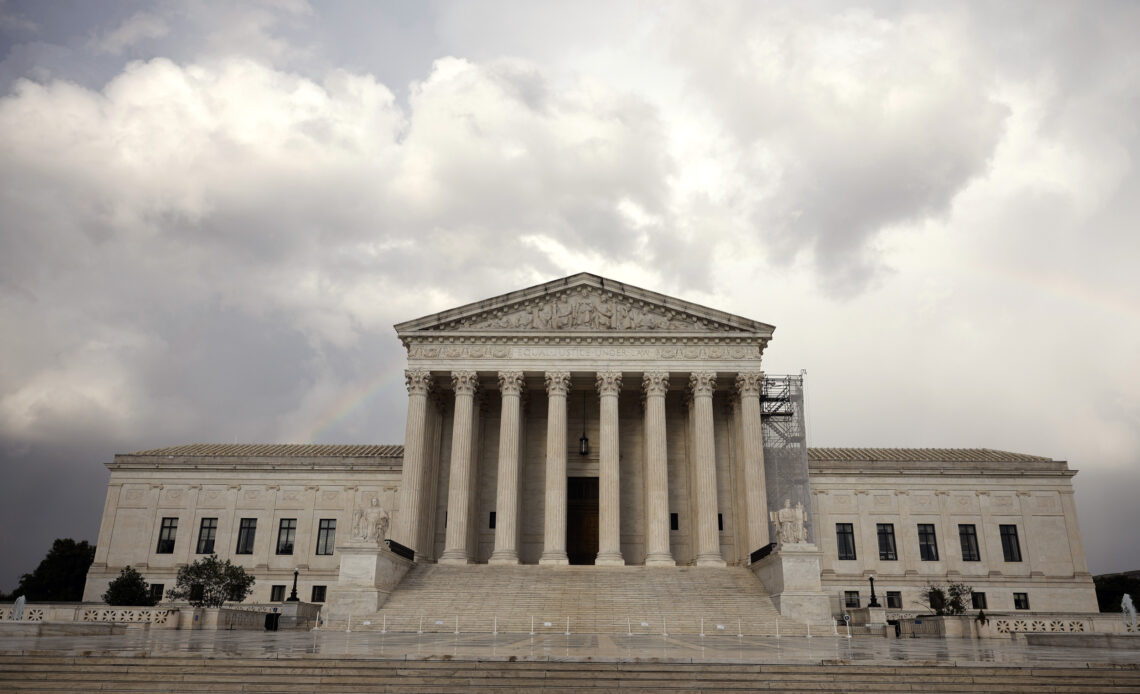Roughly one-third of Republicans feel the Supreme Court has too much power, despite the highest court currently having a conservative majority.
While Republicans gave the Supreme Court an approval rating of 51 percent, roughly 33 percent said the court had too much power, according to a new Emerson College Supreme Court Report.
That was less than the 66 percent of Democrats who said the same, but the court has leaned right since former President Donald Trump appointed Neil Gorsuch, Brett Kavanaugh and Amy Coney Barrett into the court’s vacant seats.
While Gorsuch and Kavanaugh have voted pretty consistently to the right on decisions, Barrett has served as more of a tie-breaker in many cases. In her first year, she voted alongside her fellow conservatives 70 percent of the time, but that fell to 56 percent in the 2022 term.
“It usually takes a few years for a justice to get their footing, as they get a sense of the new job,” Dan Urman, a political science professor at Northeastern, previously told Newsweek. “Barrett seems to be a principled conservative and potential swing vote, even more than Chief Justice Roberts or Justice Kavanaugh.”
Roughly 40 percent of Republicans also said that Supreme Court Justices’ decisions tend to reflect the president who appointed them, rather than acting in a fair, nonpartisan way. Around 64 percent of Democrats said the same.
One of the most controversial decisions at the Supreme Court level while Trump was in office was the overturning of Roe v. Wade, which left the right to an abortion up to the states.
This caused several states to enact new restrictive laws limiting or outright banning women from receiving an abortion in many circumstances.
Across the country, the procedure is banned in 14 states, while others have attempted to prohibit or severely restrict the practice.
The few exceptions to abortion bans in the states include preventing the death of a pregnant mother or when the pregnancy results from rape or incest. Some states also allow abortions if the fetus is considered to have conditions that would significantly impair the quality of life or lead to rapid death after birth.
In some scenarios, these laws have led to doctors delaying miscarriage management care, according to health policy research firm KFF. Pregnant women who were miscarrying were found to be denied care if there was still detectable fetal cardiac activity or until the mother’s life was deemed to be at risk.
Trump previously said he had no regrets…
Click Here to Read the Full Original Article at Newsweek…

